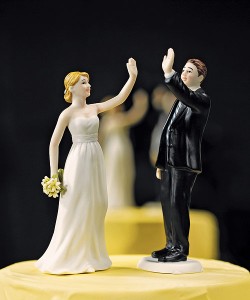Saturday, 23 August 2014
Wisdom from St. Paul
Posted by
Supertradmum
I have written on this topic before from a different angle. But, in these times, it is necessary to try and help young Catholics understand "unequal yoking".
St. Paul is referring to marriage here in this passage from 2 Corinthians 6. The city of Corinth was a great pagan center and Paul had to convince new Christians not to marry unbelievers. He was seeing the problems in relationships involving those who had received the light of Christ from those who had not.
11] Our mouth is open to you, O ye Corinthians, our heart is enlarged. [12] You are not straitened in us, but in your own bowels you are straitened. [13] But having the same recompense, (I speak as to my children,) be you also enlarged. [14] Bear not the yoke with unbelievers. For what participation hath justice with injustice? Or what fellowship hath light with darkness? [15] And what concord hath Christ with Belial? Or what part hath the faithful with the unbeliever?
[16] And what agreement hath the temple of God with idols? For you are the temple of the living God; as God saith: I will dwell in them, and walk among them; and I will be their God, and they shall be my people. [17] Wherefore, Go out from among them, and be ye separate, saith the Lord, and touch not the unclean thing: [18] And I will receive you; and I will be a Father to you; and you shall be my sons and daughters, saith the Lord Almighty.
I am going to concentrate on the juxtaposition in this passage "And what concord hath Christ with Belial?"
I think Paul is engaging in poetic irony or making a pun in this phrase, as the word Belial, (which was identified with a demon in the Old Testament), can be translated as "yokeless".
Paul is saying if one is yoked to Christ, a person that is made one with Christ in baptism, how can one join in marriage to one who is not yoked to Christ?
In verse 16 Paul becomes more specific: how can a Christian, who is a temple of the Holy Ghost, who enjoys the Indwelling of the Trinity, be joined with one who does not? Now, some Catholics simply have not understood that there is more to marriage than love. The fact that two people become one means that there must be a joining of the mind, the heart, the soul, and not just the body.
If you recall in an earlier post this year, I was incensed that a young friend who had pals who had fallen away from the Church noted that these young men should find strong Catholic girls to save them.
Women who want to be married should not "yoke" themselves with unbelievers. The man is the spiritual leader in the family and if that is lacking, all with suffer, particularly the children. Thinking that it is the duty of a wife to bring her husband into the Church is naive and a set-up for deep suffering.
Strong Catholic marriages are covenants made between equals in the Holy Spirit.
To be unequally yoked demands patience and even disappointment. One should never marry thinking that the other half of the partnership will eventually convert. I know marriages where this has not happened.
Unequal yoking weakens the Church and may be an occasion of sin for the believing person. However, God does give graces for conversion to all people. And, in a loving marriage, the groundwork for the acceptance of that conversion may be made if the believing person is living in the life of virtues.
For those in unequally yoked marriages, I pray that God truly gives tremendous graces so that the two may really become one. Paul's warning is prudent and wise.


